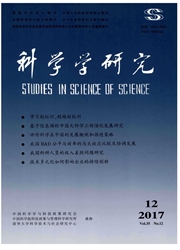

 中文摘要:
中文摘要:
合作创新饱受伙伴机会主义行为的威胁,目前对机会主义行为发生的前因集中于资产专用性的考察。然而,对资产专用性与机会主义行为的关系,现有研究分别基于交易成本理论和关系交换理论得出两种截然相反的解释。本文尝试从资源依赖视角整合已有理论观点。研究以装备制造企业合作创新项目为例,采用扎根理论编码技术对案例进行剖析,发掘出“单边资产专用性”、“双边资产专用性”、“权力不对称”、“计算型信任”和“关系型信任”等关键范畴以及范畴间的逻辑关系。研究发现:(1)以往解释悖论的原因在于缺乏对资产专用性概念的细化,没有区分单边和双边资产专用性;(2)单边资产专用性引发机会主义行为的作用机制是竞争性依赖产生的权力不对称;(3)双边资产专用性抑制机会主义行为的作用机制则是增进共生性依赖产生的计算型信任;(4)关系型信任对单边资产专用性与机会主义行为关系的调节作用存在方向转变。
 英文摘要:
英文摘要:
The performance of cooperative innovation is deeply influenced by partner's opportunism, and the explanation of partner's opportunism' s causes focuses on the asset specificity. However, there are two kinds of conflicting explanations on the relationship be- tween asset specificity and opportunism, which base on the perspective of transaction cost economics (TCE) and the perspective of re- lational exchange theory (RET) respectively. The study tries to integrate the TCE and RET from the perspective of resource depend- ence. Besides, the study takes cooperative innovation projects of equipment manufacturing enterprises for example, and analysises the cases by using the coding technology in view of grounded theory approach. What' s more, the study explores some new constructs, such as "unilateral asset specificity", "bilateral asset specificity", "power asymmetry", "calculative trust" and " relational trust". The study finds that : ( 1 ) There are two types of asset specificity, i.e. unilateral and bilateral. The theoretical paradox lies in that previous studies didn' t distinguish the types of asset specificity. (2) The mechanism of unilateral asset specificity initiating opportunism behav- ior is the result of power asymmetry from the competition dependence. (3) The mechanism of bilateral asset specificity suppressing op- portunism behavior is the result of calculative trust from the symbiosis dependence. (4) The moderate effect of relational trust on the relationship between unilateral asset specificity and opportunism behavior maybe change in the direction ( from weakening to enhance).
 同期刊论文项目
同期刊论文项目
 同项目期刊论文
同项目期刊论文
 期刊信息
期刊信息
